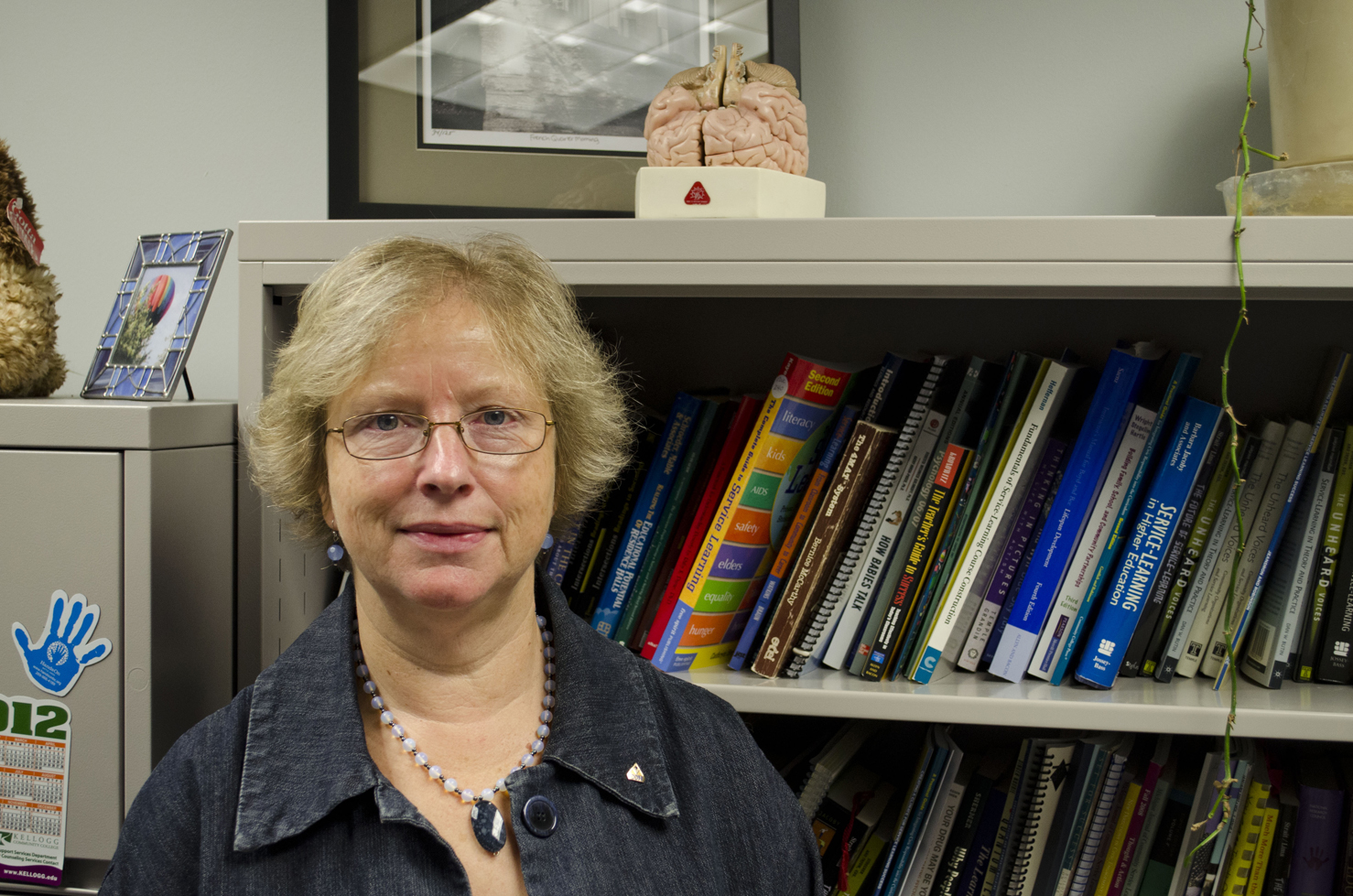Editor’s note: The following article was published earlier this month in Kellogg Community College’s Summer 2012 edition of CareerFocus magazine with the headline, “The benefits of service learning.” View the full CareerFocus publication online at kellogg.mycareerfocus.org or pick up a print copy from the newspaper racks on campus.
In addition to helping students become more engaged with their communities, Glenda Morling, a service learning coordinator and social science instructor at Kellogg Community College, said service learning also benefits students in other ways, including helping them with career choices, skill building and resume building.
Here are a few of the other benefits Morling said are afforded students through service learning experiences.
FULFILLS FOUR-YEAR REQUIREMENTS
Morling said service learning or volunteer experience is a requirement for graduation at many four-year colleges, and that many of those schools will accept the service learning experience that KCC students get as a completion of those requirements.
In many cases, she said, “It will either cover the requirement that they do service or service learning or it will lessen the amount they have to do when they go to the next college.”
REAL-WORLD EXPERIENCE
Service learning offers students a chance to gain real-world experience in their field before heading into the job market, something that is especially critical these days when it’s so difficult to find a job, Morling said.
“If students can say they have some real-world experience in an organization, it’s not only something they can put on their resume, but it’s something to talk about at an interview,” she said. “That I built a website for a local nonprofit or I created a database for them. Those sorts of things that students are asked to do are really important.”
Morling said service learning also helps students with networking, another valuable factor to consider in today’s job climate.
“We’ve had a lot of students get jobs as a result of doing service learning,” she said. “Just this experience is really useful.”
BUILDS SELF-ESTEEM
Morling said service learning builds interpersonal skills and self-esteem for students who often think that they have little to offer the community. She noted one student who felt this way who ended up installing all the wiring for the computers at a local nonprofit.
“He didn’t think he had much to offer,” Morling said, “but everybody has a lot to offer, and this is a way for them to be able to channel their skills.”
OFFERS GUIDANCE
While service learning is a great resource to help those who know where they want to go in life become passionate about their interests, Morling said, it’s also valuable as a way for individuals to identify those things they may not be passionate about before they become too invested.
“We have students who think they want to become a teacher, for instance, and they’ll go and serve in a school and then they realize, no, that’s not for me,” she said. “And that’s just as important, to find out what you don’t want to do.”
COMMUNITY BENEFITS
Morling stressed that the benefits of service learning go beyond the experiences of the students involved. Service learning, she said, is about making connections to help solve society’s problems.
“We challenge them to come up with projects that would be valuable to the community,” Morling said of KCC’s service learning students. “When they go and do these experiences, it’s not just for the sake of being used; it’s to make connections to the concepts that they’re learning in the classroom.”
Click here for more information about service learning at Kellogg Community College.
Pictured above is Glenda Morling, a service learning coordinator and social science instructor at Kellogg Community College.
